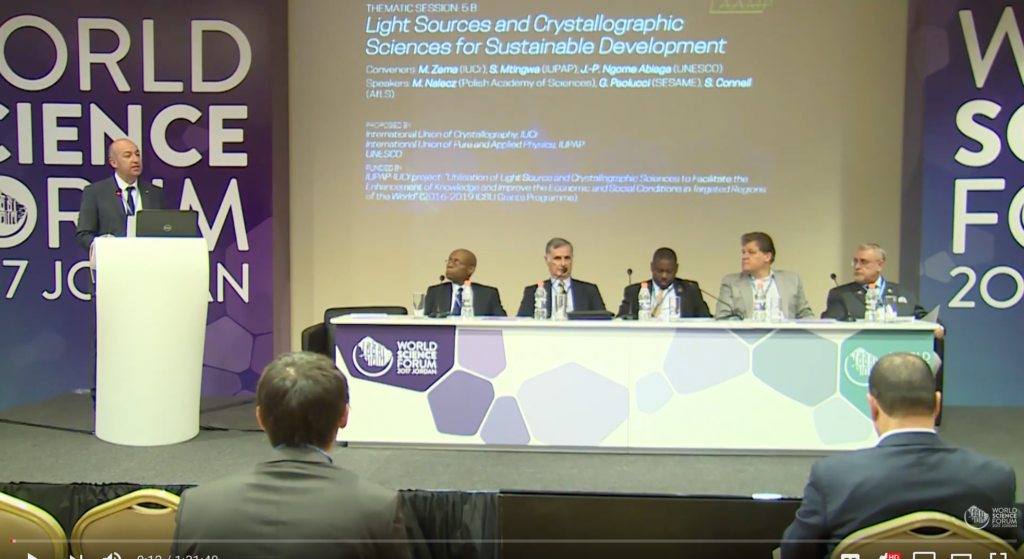The AfLS was resented at a special session of the World Science Forum 7-11 Nov 2017. called Light Sources and Crystallographic Sciences for Sustainable Development. The session theme maintained that because of their high costs and multidisciplinary use, large-scale synchrotron light sources facilities provide strong opportunities for integration through networking and cost-sharing, and promote multi-disciplinary collaboration with the wider global community, while promoting science diplomacy and peace at large. Following the SESAME example– the Synchrotron-light for Experimental Science and Applications in the Middle East –, the thematic session will use as its basis, the UNESCO-IUPAP-IUCr project “Light sources for Africa, the Americas and the Middle East”, to showcase how light sources have revolutionized research in many science and technology disciplines and have contributed to the socio-economic development of countries and regions by:
- creating international scientific communities, fostering cooperation;
- improving education and creating job opportunities;
- discussing the steps-forward following the establishment of light sources in the South (mainly, Africa and Latin America), while learning from the experiences of SESAME;
- increasing awareness of decision-makers of the major advances that light sources bring to these regions and the identification of the best locations for a sustainable development of such infrastructure;
- advocating through global initiatives such the International Year of Crystallography and International Year of Light, including follow-up activities;
- developing a critical mass of highly qualified human capital (including the African science diaspora) needed to reach the SDGs and regional framework agreements like the African Union Agenda 2063.
Speakers:
- Simon Connell, Professor of Physics, University of Johannesburg, Talk available here. Cite as “Connell, S. The African Light Source Project. Presentation at the World Science Forum. October 2017”.
- Juste Jean-Paul Ngome Abiaga, Assisstant Programme Specialist, UNESCO
- Maciej Nalecz, Former Director & Executive Secretary of the International Basic Sciences Programme, UNESCO, UNESCO
- Michele Zema, Lecturer in Mineralogy and Crystallography, International Union of Crystallography, University of Pavia
- Sekazi Mtingwa, Principal Partner, TriSEED Consultants, LLC
- Giorgio Paolucci, Scientific Director of SESAME, SESAME
The session livestream is here.
